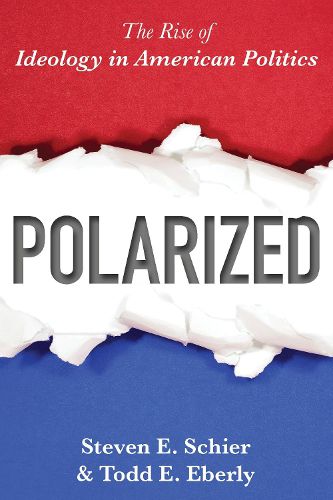Readings Newsletter
Become a Readings Member to make your shopping experience even easier.
Sign in or sign up for free!
You’re not far away from qualifying for FREE standard shipping within Australia
You’ve qualified for FREE standard shipping within Australia
The cart is loading…






From campus protests to the Congress floor, the central feature of contemporary American politics is ideological polarization. In this concise, readable, but comprehensive text, Steven E. Schier and Todd E. Eberly introduce students to this contentious subject through an in-depth look at the ideological foundations of the contemporary American political machine of parties, politicians, the media, and the public. Beginning with a redefinition of contemporary liberalism and conservatism, the authors develop a comprehensive examination of ideology in all branches of American national and state governments. Investigations into ideologies reveal a seeming paradox of a representative political system defined by ever growing divisions and a public that continues to describe itself as politically moderate. The work’s breadth makes it a good candidate for a course introducing American politics, while its institutional focus makes it suitable for adoption in more advanced courses on Congress, the Presidency, the courts or political parties.
$9.00 standard shipping within Australia
FREE standard shipping within Australia for orders over $100.00
Express & International shipping calculated at checkout
From campus protests to the Congress floor, the central feature of contemporary American politics is ideological polarization. In this concise, readable, but comprehensive text, Steven E. Schier and Todd E. Eberly introduce students to this contentious subject through an in-depth look at the ideological foundations of the contemporary American political machine of parties, politicians, the media, and the public. Beginning with a redefinition of contemporary liberalism and conservatism, the authors develop a comprehensive examination of ideology in all branches of American national and state governments. Investigations into ideologies reveal a seeming paradox of a representative political system defined by ever growing divisions and a public that continues to describe itself as politically moderate. The work’s breadth makes it a good candidate for a course introducing American politics, while its institutional focus makes it suitable for adoption in more advanced courses on Congress, the Presidency, the courts or political parties.